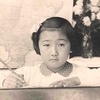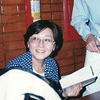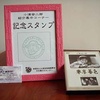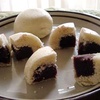
I was born in São Paulo Hospital on Frei Caneca Road, in the heart of the city of São Paulo.

I feel joy from within my heart through writing. Writing about things has given me a feeling of purpose in life, and thanks to that I’ve been able to enjoy my walk through the long journey of life thus far.

Pochi is a Japanese dogWagging his tail...“Wan, wan”Perry was born in BrazilHe doesn’t understand “Wan, wan”Perry says “Au au”Au au is all he can say

When I was a student, we had an interesting kid in our class.

Ever since I was in school, I’ve heard that “Japanese-Brazilians are bad at Portuguese”. Poor writing was a given…it was hard to understand what they said…they had strange pronunciation…bottom line, it sounded like Japanese.

My name is Laura. Its root language is Latin, and it means “success”. Unfortunately, I don’t have a Japanese name.

II was always hanging around my mom. When she was preparing meals, I was always peaking over the table asking, “What’s that?”

My mother likes feijoada, while my father likes bacalhoada. As for third-generation me, as a kid I liked natto.

Round, and filled with that oh-so-sweet red bean paste. That’s the Japanese treat, manju . Brazilians know it as “doce de feijon ”.

“Boys don’t cry.” That’s the mantra for how boys are raised in Brazil. And when they become adults, they’re told “Housework is a woman’s job” and “Only women watch TV dramas,” putting even more pressure on men to shun household chores and dramas.